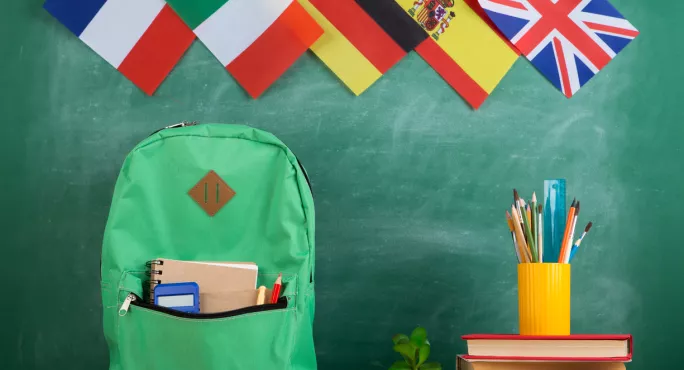Modern foreign languages in English schools are in a “vicious circle” of decline that will only be broken through policy intervention, an exams expert has warned.
Ofqual adviser Professor Robert Coe told Tes that MFL subjects were in trouble as the figures for this year show that the numbers of students taking French, German and Spanish all dropped this year.
Data for this year’s GCSEs shows the number of entries for Spanish fell from 108,982 last year to 107,488 in 2022. French fell from 124,739 to 122,746 and German dropped from 36,933 to 34,966.
FFT Education Datalab also highlighted how these subjects have declined despite an increase in the student population.
In its analysis, FFT also highlighted the discrepancy between Ofqual’s provisional data for summer 2022 entries, which stated that there were 116,355 entries in Spanish by students of all ages in England in 2022, and the JCQ data yesterday, which said there were 107,488.
GCSEs: Call for action to boost entries for modern foreign languages
Professor Coe’s appeal for national intervention on MFL subjects comes after warnings ahead of GCSE results day that the decline in MFL take-up had meant that the government’s EBacc targets were “done for.
The professor, who is director of research and development at Evidence Based Education, said: “MFL, in general, is in trouble. I think part of the challenge is that languages are perceived as being - and probably are, in my view - harder than some other GCSEs.
“The league table accountability pressure is to maximise grades and that means you’ve really got to want to believe in the principle of studying languages in order to make that sacrifice in the overall grades that you’re going to get, because the chances are you could get higher grades by entering students for other subjects instead.
“It’s a policy question. Do we think it’s important for young people to have this opportunity and be encouraged or pressured to take that opportunity?
“Unless we do something like that, it basically will fizzle out and the whole thing becomes a bit self-fulfilling because if we haven’t got the teachers coming through the training routes in languages then even if you wanted to boost the take-up, you can’t because you haven’t got people who can teach it.
“Then if people think there’s no demand for it then people aren’t coming through the training routes so the whole thing is a bit of a vicious circle really.
“It needs some strong policy direction, I think, to turn that around, which could happen but I wouldn’t bet on it, personally.”
The British Council has raised particular concern about the decline in the number of GCSE German entries this year.
It said: “It’s disappointing that that numbers taking GCSE languages have decreased this year. Spanish has decreased by 1.7 per cent after a period of rapid growth since 2018, while French remains the most popular language subject despite a 1.9 per cent decrease in entries. The continued decline in numbers taking German (5.1 per cent this year) is a particular concern.
“As stated in our Language Trends Survey 2022, as schools continue to recover from the pandemic, it’s essential that they prioritise language learning for all and look to build back international opportunities and connections that have been lost.
“Languages enable us to work together on global challenges, as well as opening doors for pupils to discover new people, places and cultures. It is vital for the UK’s future that all pupils have access to high-quality language learning.”





